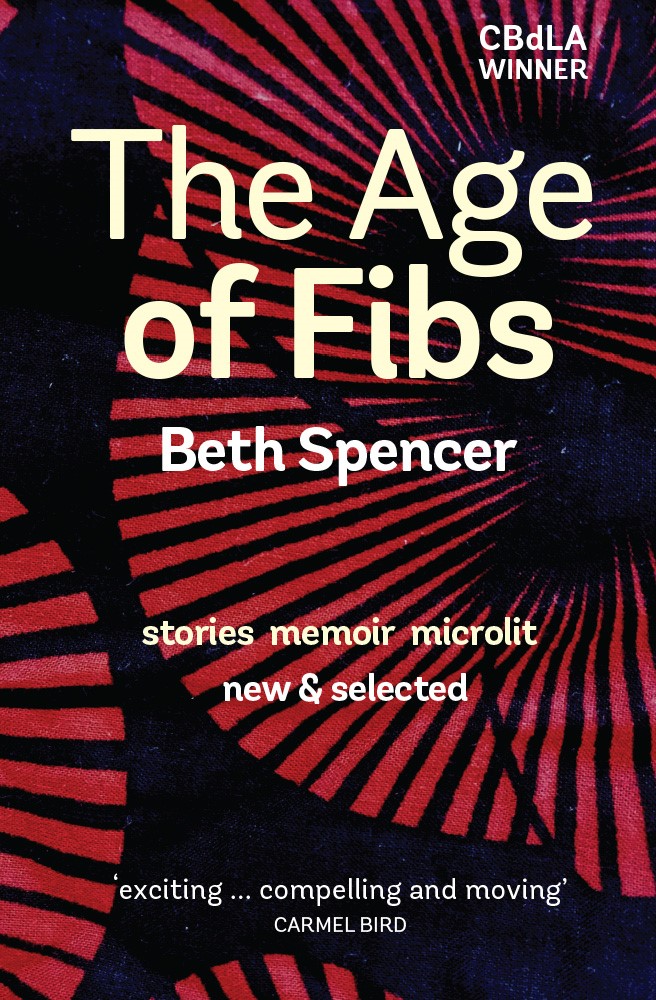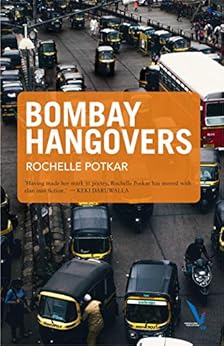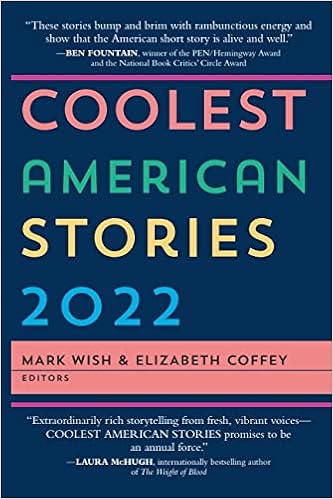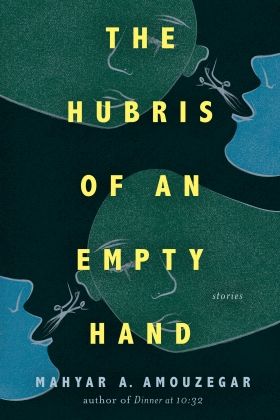 It is always both true and fictive, and like dreams, pieced together from a grab-bag of images and turned into stories that reflect the themes being explored. The Age of Fibs picks up on this uncertainty beautifully and works with it, allowing for openness, complexity, and fragmentation, while still keeping the coherency of the story intact.
It is always both true and fictive, and like dreams, pieced together from a grab-bag of images and turned into stories that reflect the themes being explored. The Age of Fibs picks up on this uncertainty beautifully and works with it, allowing for openness, complexity, and fragmentation, while still keeping the coherency of the story intact.
Tag: short stories
A review of If You’re Happy by Fiona Robertson
 This short story collection by doctor/ writer Fiona Robertson, lures us into intimate scenarios where joy and its adversary– fear– are coterminous. From a lovelorn housewife caught in a literal storm and a lonely man in a housing estate, Robertson’s characters drip in pathos and multidimensionality within the tight confines of each story, leaving readers saying a reticent farewell, wondering after the characters, ambivalent about their predicaments.
This short story collection by doctor/ writer Fiona Robertson, lures us into intimate scenarios where joy and its adversary– fear– are coterminous. From a lovelorn housewife caught in a literal storm and a lonely man in a housing estate, Robertson’s characters drip in pathos and multidimensionality within the tight confines of each story, leaving readers saying a reticent farewell, wondering after the characters, ambivalent about their predicaments.
A review of Bombay Hangovers by Rochelle Potkar
 This meticulous nature of her research into each story marks her out from other writers. This is again evident in another beautiful story where a Parsi youth is obsessed with creating his own brand of perfume (Parfum). Rochelle goes into a heady mixture of the scents and perfumes employed. She even has a lab where the protagonist works to manufacture that one perfume that can be his own. Finally, instead of his wife, he finds solace in the arms of a maid whose function is merely to be like a springboard of scents.
This meticulous nature of her research into each story marks her out from other writers. This is again evident in another beautiful story where a Parsi youth is obsessed with creating his own brand of perfume (Parfum). Rochelle goes into a heady mixture of the scents and perfumes employed. She even has a lab where the protagonist works to manufacture that one perfume that can be his own. Finally, instead of his wife, he finds solace in the arms of a maid whose function is merely to be like a springboard of scents.
A review of A Better Class of People by Robert Lopez
 Here there is heartache and trauma and humanity. There is detachment and longing and grief. Maybe we need to expand the umbrella that covers a “better class” of people. Or maybe, our narrator is accurate when, early in the book, he asserts, “Everyone I know is horrible.”
Here there is heartache and trauma and humanity. There is detachment and longing and grief. Maybe we need to expand the umbrella that covers a “better class” of people. Or maybe, our narrator is accurate when, early in the book, he asserts, “Everyone I know is horrible.”
A review of Shaky Town by Lou Mathews
 In Shaky Town, Mathews expertly shows us how things work and why they break down, taking apart and putting back together a range of small, yet fully felt lives. His overlapping worlds are mapped in prose that shimmers like hammered copper. He knows this territory well: you don’t doubt that when a certain bug shrinks the leaves of a eugenia hedge, more of a morose neighbor’s sad guitar music will bleed through.
In Shaky Town, Mathews expertly shows us how things work and why they break down, taking apart and putting back together a range of small, yet fully felt lives. His overlapping worlds are mapped in prose that shimmers like hammered copper. He knows this territory well: you don’t doubt that when a certain bug shrinks the leaves of a eugenia hedge, more of a morose neighbor’s sad guitar music will bleed through.
A review of Coolest American Stories 2022 edited by Mark Wish and Elizabeth Coffey
 One of the coolest things about the thirteen stories that make up this collection and makes them legitimate contenders for the title is the sense of revelation that each embodies, whether it’s a poignant insight into love or suicide or your “otherness,” or even just the quotidian awareness of being hungry after watching a lion bite off your mob boss’s head, as in S.A. Cosby’s hilarious noir, “Pantera Rex.” Each of these stories has its moment, some more subtle than others, some more dire. (Look no further than the first story, Lori D. Johnson’s “Shepherd’s Hell,” if you’re looking for “dire.”)
One of the coolest things about the thirteen stories that make up this collection and makes them legitimate contenders for the title is the sense of revelation that each embodies, whether it’s a poignant insight into love or suicide or your “otherness,” or even just the quotidian awareness of being hungry after watching a lion bite off your mob boss’s head, as in S.A. Cosby’s hilarious noir, “Pantera Rex.” Each of these stories has its moment, some more subtle than others, some more dire. (Look no further than the first story, Lori D. Johnson’s “Shepherd’s Hell,” if you’re looking for “dire.”)
A review of The Museum of Heartache by Paul Luikart
 Luikart’s short stories are like glimpses of reality television episodes of the down-and-out and downtrodden. Each excerpt gives the reader a video clip in the mind, briefly immersing in the stories of bad parents, drug addicts, prostitutes, the suicidal, the desperately lonely, the neglected, the abandoned, the mentally ill, the grieving, and many more lost and despondent types. His writing puts one right into the desperate situations and into the brains of his characters.
Luikart’s short stories are like glimpses of reality television episodes of the down-and-out and downtrodden. Each excerpt gives the reader a video clip in the mind, briefly immersing in the stories of bad parents, drug addicts, prostitutes, the suicidal, the desperately lonely, the neglected, the abandoned, the mentally ill, the grieving, and many more lost and despondent types. His writing puts one right into the desperate situations and into the brains of his characters.
The Hubris Of An Empty Hand by Mahyar A. Amouzegar
 Amouzegar has this fantastic manner of urging his reader to put their “ear to the wall.” He constantly lures you in, requesting that you listen closely, that you read carefully, and that you ask questions. His gift of narration is dangerously cunning as well. Between and within his stories, he experiments with points of view, using narrative gymnastics to capture the most alluring perspective. Amouzegar holds the secrets close to the chest, withholding them until three chapters later, and or even indefinitely.
Amouzegar has this fantastic manner of urging his reader to put their “ear to the wall.” He constantly lures you in, requesting that you listen closely, that you read carefully, and that you ask questions. His gift of narration is dangerously cunning as well. Between and within his stories, he experiments with points of view, using narrative gymnastics to capture the most alluring perspective. Amouzegar holds the secrets close to the chest, withholding them until three chapters later, and or even indefinitely.
A review of Watched and other stories by Carol Chandler
 Each story is a slice of life where the reader enters places and into the mind of the characters. The characters are well developed, intriguing and mysterious, some live at the margin and others think at the margin. The plots are neat and compact with good time and pacing demonstrating the skills of the writer.
Each story is a slice of life where the reader enters places and into the mind of the characters. The characters are well developed, intriguing and mysterious, some live at the margin and others think at the margin. The plots are neat and compact with good time and pacing demonstrating the skills of the writer.
A review of Third Eye Rising by Murzban F. Shroff
 Seamlessly, these stories jigsaw together to show the startling offshoots of the traditions of India: the greater freedom of husbands than wives; the camaraderie of male drinking and its hazardous spill into families; the ways wealth and poverty bedevil relationships; the unslakable appetites evoked by success; the homely places where love thrives.
Seamlessly, these stories jigsaw together to show the startling offshoots of the traditions of India: the greater freedom of husbands than wives; the camaraderie of male drinking and its hazardous spill into families; the ways wealth and poverty bedevil relationships; the unslakable appetites evoked by success; the homely places where love thrives.